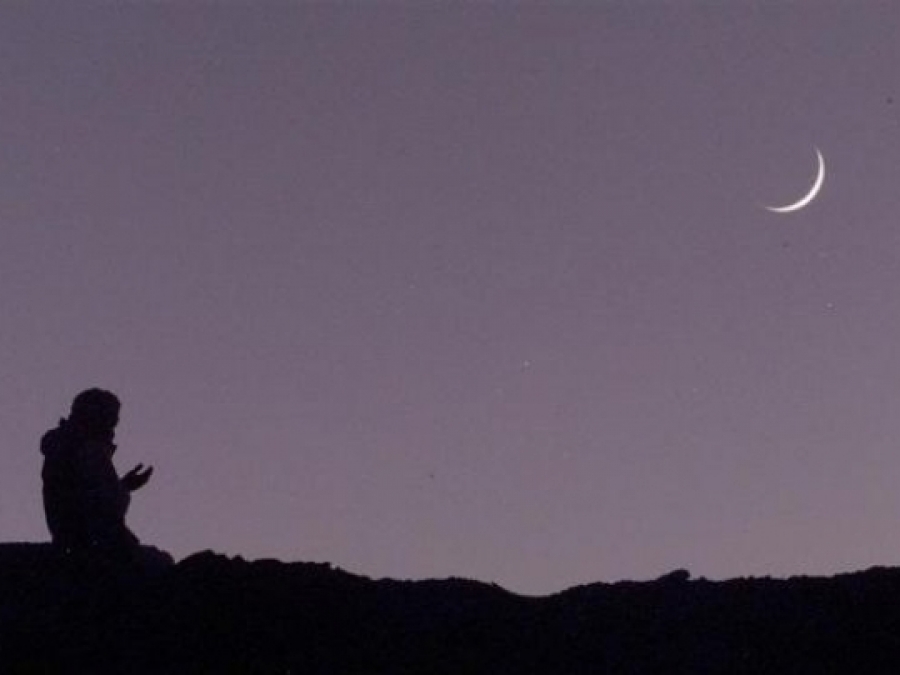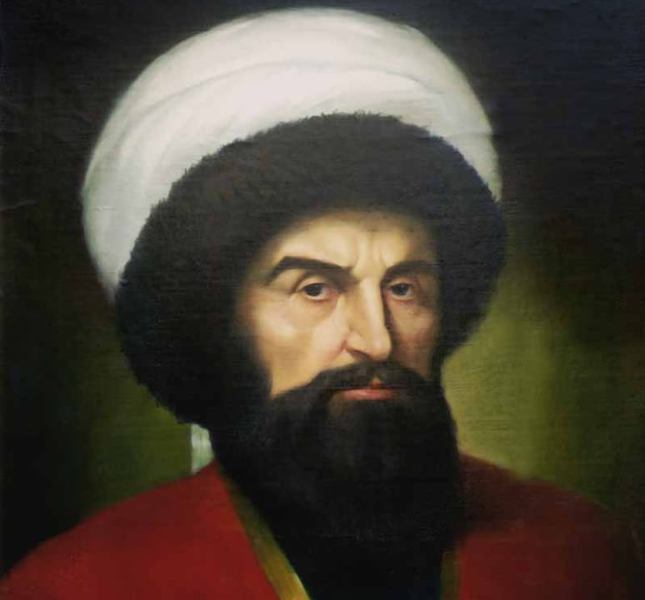The reality of the chaos and confusion which greets the Muslims at the beginning and end of every Ramadan is well known. This is hardly appropriate given the blessed nature of the month of Ramadan, a month we should greet and end with unity, knowledge, and confidence, not confusion and ignorance.
That there are differences of opinion on the matter of moonsighting is also well-known. In and of itself, this is not a problem. However, sometimes our actions can be a problem (Islamically) when the variety of opinion is met with ignorance of some fundamental matters.
With the objective of removing some of the confusion and clarifying some important relevant matters, the following brief considerations are presented. As another Ramadan approaches, we hope that we can all act on the basis of knowledge, and not ignorance. This presentation is intended as a brief summary, not a detailed assessment.
Our Reference Point
Fundamentally, our actions are to be based on the Shari’ah (Islamic Law). The primary sources of the Shari’ah are the Quran & Sunnah, and what is derived thereof. Our emotions, public opinion, the view of the majority, norms, customs, etc. do not determine the Shari’ah rules, and we must be careful not to unknowingly make these things sources on which our actions are based.
The Evidences
Allah (swt) says, “Whoever witnesses the (crescent of the) month among you, let him fast it.” [al-Baqarah:185]
The Messenger of Allah (saw) said,
“Fast upon its (the crescent moon) sighting and break fast upon its sighting, but if it is covered from you complete the period of Sha’ban as thirty (days).” (Bukhari)
“Fast when you see it (the crescent), and break your fast when you see it, and if it is hidden from you determine it.” (Muslim)
The Opinions
There are two distinct matters in terms of the difference of opinion:
1. Moonsighting v Calculation
2. Localsighting v Globalsighting
Sighting v Calculation
The ahadith presented above are quite clear in their command for the Muslims to begin and end Ramadan by sighting the moon. In spite of this, some advocate calculation as a substitute to sighting. This means using astronomical knowledge to calculate when the new moon will be born or when it will first be visible. This is an invalid position which should not be followed. Not one classical scholar of Islam ever held such a position.
The reason for this is not that Islam is not progressive or that it resists technology. On the contrary, the use of new technology and knowledge is encouraged but to the end of implementing the divine rulings, as opposed to changing them. Thus, calculations can be used to determine the best time and place to sight the moon, but not to replace the ruling of sighting altogether.
But don’t we use calculation in determining the times of prayer?
Yes we do, and this is a good example of the adoption of new technology to assist in the implementation of an Islamic ruling. The difference however is that the Islamic ruling with respect to the prayer times is that maghrib, for instance, begins when the sun sets, not when you see the sun set. Dhuhr begins when the sun moves from its zenith, not when we see this occur. So we can calculate these times and act according to them. However Ramadan begins when we see the moon, not when it is born. In other words, to use more technical usuli terminology, the sabab of maghrib is the sunset, not sighting the sunset, but the sabab of Ramadan is sighting the moon, not its being born nor its potentially being visible.
The overwhelming majority of classical scholars held that using calculations was an invalid way to begin Ramadan. The extent of their rejection of calculation is highlighted in Imam Malik’s statement, related by Imam al-Qurtubi in his tafsir, in which he said of the Imam who fasts and breaks fast by calculation instead of sighting, “He should not be followed in prayer nor emulated.” (Jami’ li-Ahkam al-Qur’an, 2:285)
No classical scholar held the opinion that calculation can be used as a substitute for physical sighting altogether. This was rejected outright. Some did allow the conditional use, but this is not advocated by anyone today so need not be discussed.
Local v Global
Having established that the crescent must be sighted, the next issue of disagreement is whether one sighting suffices for all the Muslims around the world or do different lands/regions have their own sightings.
The position of global sighting is the stronger opinion, and indeed is the opinion of the majority of classical scholars. The Encyclopaedia of Fiqh (Kuwait) states,
“The Hanafis, Malikis and Hanbalis held – and it is one saying in the Shaf’i school also – that no consideration is given to the diversity of horizons [ikhtilaf al-matali’] in regards to confirming the month of Ramadan. Thus if the sighting of the crescent of Ramadan is established in one land, fasting becomes obligatory on all the Muslims in all the lands. This is because of the saying of his (saw) saying, “Fast at its sighting”, which is an address to the entire Ummah.” (vol 23, p.142)
This is because, as most scholars state, the command of fasting and breaking fast in the Prophet’s saying is general. The imperative verb ‘sūmoo’ (do fast) is in the plural form thus including all Muslims. Further, the word ‘ru’yatih’ (its sighting) has also come in a general unrestricted form. Thus it includes any sighting. It does not merely apply to the person who sights the moon, nor does it specifically apply only to the people of his own country or region. Any sighting around the world suffices for all the Muslims.
Notwithstanding this, some scholars (mainly of the Shafi’i school) held that each region (defined by natural distance, not artificial ‘countries’) should go by its own sighting, on the basis of a narration from Ibn Abbas (ra) where he did not go by the sighting of Mu’awiya in al-Sham. Nevertheless the stronger opinion is that this was the ijtihad of Ibn Abbas, and is not an equal evidence to a hadith of the Prophet as explained by the majority of scholars (see for example Shawkani, Nayl ul- Awtar, 4:268).
Other scholars have stated the same:
“To summarise: a person who learns about the sighting of the moon in good time to be able to utilise it for fasting, for ending his fast, or for sacrifice, he must definitely do so. The texts and the reports about the salaf point to this. To limit this to a certain distance or country would contradict both the reason and the shar` (Islamic law).” [Ibn Taymiyya, Majmu’ al-Fatawa, 5: 111]
“Wherever the sighting is confirmed, however far off it may be, even if it were to be thousands of miles; the people of this place will have to abide by that.” [Fatawa Dar ul-Uloom Deoband (Urdu), 6:380]
Globalsighting feasible?
Some may think that globalsighting is not feasible practically given the vast distances of different continents around the world. However in reality it is quite feasible, considering that:
1. The difference in the rise of the new moon between the farthest two points in the world does not exceed twelve hours.
2. Finding out late of sightings due to time differences, which is quite possible, can be accounted for by making up a day if it is missed or, if the news of sighting of the Shawwal moon arrives late, breaking the fast and praying Eid the following morning.
The latter is perfectly valid. Indeed both situations occurred with the Prophet (saw) and his Companions, as the following ahadith show:
The Muslims did not begin fasting since they did not see the moon. Then a man, from out of Madinah, came and told the Prophet (saw) that he had seen it (the moon). The Prophet (saw) asked him if he was a Muslim to which the man answered in the affirmative. The Prophet (saw) then said: “Allahu-Akbar! One is enough for all Muslims.” The Prophet (saw) fasted and asked the people to stop eating and start fasting. (Abu Dawud & al-Sarakhsi in al-Masbut).
Abu ‘Umayr ibn Anas reported from his paternal uncles among the Ansar who said, “It was cloudy and we could not see the new moon of Shawwal, so we started the day fasting, then a caravan came at the end of the day and told the Messenger of Allah (saw) that they had seen the new moon of Shawwal the day before, so he told the people to stop fasting, and they went out to pray the Eid prayer the next day.” (Ahmad)
Local Sighting in practice
Notwithstanding the strength of the globalsighting position, the localsighting opinion is still a valid Islamic opinion that can be followed by those who adopt it. However it should be followed according to the classical opinions and not on the basis on ulterior political factors as some do in contemporary times.
The most important consideration in this regards is that those who want to follow localsighting must be consistent with what are considered local regions. What distance separates one region from another? Is Australia one region such that a sighting in Perth or Darwin suffices for Muslims in Sydney? If so, then given that Darwin is closer to Jakarta than to Sydney is Indonesia part of the Australian region? Similarly, shouldn’t Jordon, Syria and Lebanon be considered one region given the distance between them is shorter than the distance between Sydney and Perth? Such questions must be answered by a consistent definition of what distinguishes one region from another.
What we find happening in modern times is that the localsighting position is adopted by some but implemented on the basis of false political considerations instead of correct Islamic injunction. The rulers in the Muslim lands are agents of the disbelieving Western powers. They want the Muslim lands to remain divided and for the Muslims to show no sign of unity based on Islam. This is why we have a farcical situation whereby all the countries in the Middle East go by their own sightings even through most of them would come under the same region. This sort of manipulation of fiqh on the basis of borders placed in the Muslim lands by the kuffar is to be rejected outright, and we must be careful not to follow those who perpetuate such false divisions.
We must reject these nationalistic borders introduced by the enemies of Allah (swt) and work to unite the Muslim lands, instead of recognising them and even changing our fiqh on their basis. We must remember that in Islam there is no obedience to any ruler or government in what is a disobedience to Allah (swt).
What about following the majority?
Some people argue that we must follow what the majority are practicing, on the basis of some Islamic texts about holding on to the Jama’ah. This is a misrepresentation of the word ‘Jama’ah’ which in the Islamic terminology refers not to some ill-defined ‘majority’ but to the collective of Muslims under an Imam (Khalifah). Hence the Prophet (saw) advised Huthaifah to, “Adhere to the Jama’ah of Muslims and their Imam” when the times of great tribulation arrive (narrated in a long hadith by al-Bukhari).
It can also refer to those who adhere to the correct Islam position even if it is a minority, as expressed in the narration of Ibn Mas’ud (ra) where he said, “The Jama’ah is the Truth (Haq) even if it is one person”. This shows that following the Jama’ah is not a numbers game about following those who are in the majority.
Indeed, there is no principle of merely following the majority of people in Islam. Rather the hukm of Allah (swt) is to be followed. We are to follow the strongest opinion. Any valid opinion can however be followed by those who adopt such opinions. This is different to following the majority. In some cases the majority of some region may follow an opinion which is extremely weak or even invalid, like calculating the birth of the moon. In such a case it would be entirely wrong to follow the majority.
What about Unity?
The true unity of the Muslims can only be achieved under the Khilafah. The adoption of the Khalifah is what removes the difference of opinion. Until the Khilafah is re-established, there will not be any unity in the matter of Ramadan, let alone other more important matters. Any claims of unity have to therefore be considered in light of this fact. We usually have 2-3 different beginnings for Ramadan and for Eid in Sydney. You or I moving from one position to another will not achieve any unity. Nor will my following ‘the biggest mosque’ or ‘the biggest community’.
Further, to run after local unity in one city is a rather narrow approach. Even if the Muslims in Australia followed one method, and those in the Middle East followed a few other methods, and those in the Subcontinent yet more, what sort of unity does this represent? The unity of the whole Ummah is the objective. The globalsighting position, on top of being the strongest opinion, is most conducive to this.
Thus everyone is advised to follow the strongest Islamic opinion instead of running after illusions of unity which will not be fulfilled without the requisite political institution of Khilafah. This does not mean that the disunity is an acceptable situation. On the contrary, efforts to achieve the proper unity through the establishment of Khilafah must be re-doubled. Until it is achieved however, mirages should not be chased.
Conclusion
Our deen is a way of life based on knowledge, not ignorance. It is also a deen based of tolerance, mutual respect and noble etiquette. The moonsighting discussion will no doubt happen every year until the comprehensive solution – the Khilafah – is established. All of us should do our best to gain some understanding about the matter in order to worship Allah (swt) on the basis on knowledge. If we follow a mosque, we should know what opinion that mosque is using. No shaykh or mosque committee is immune from making mistakes or from being influenced by overriding political imperatives, so such immunity should not be assumed as a certainty. Of course we assume the best as a starting point. But in matters of the deen we should gain as much knowledge as we can and make an informed decision, for we will be accountable in front of Allah (swt) in accordance with our capacity.
Importantly, whichever opinion we adopt, we should harbour no ill-will in our hearts against other Muslims, and we should engage in discussion with the required noble Islamic etiquette. Ramadan is a time for purifying the hearts and spreading love and respect amongst the believers. Let us all reflect this in our actions this Ramadan insha’Allah.
May Allah (swt) guide us all this Ramadan to that which pleases Him, increase us in knowledge, and purify our hearts.
![]()

















